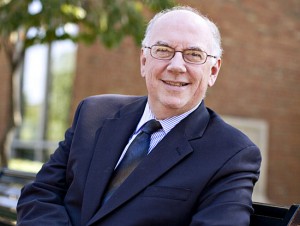
 I recently returned from a two-week academic trip to China. Every time I visit the country I learn a little more about it and return with a different perspective. During this trip, it was clear that the Chinese are addressing many of the same issues we face here in the United States.
I recently returned from a two-week academic trip to China. Every time I visit the country I learn a little more about it and return with a different perspective. During this trip, it was clear that the Chinese are addressing many of the same issues we face here in the United States.
I visited Guangdong, where the impact of globalization is evident with shipping containers lining many major ports ready to off-load and reload. This is visible in the Nansha district of Guangdong, home to a large Toyota factory that produces 360,000 cars a year. The factory employs about 7,000 workers in two shifts, and it embodies one of the most recent examples of the Toyota production system. One thousand cars per day roll off one of the production lines and another 500 exit the second line with safety, efficiency and quality guiding the production. The most surprising thing is that every car produced in Nansha is headed for the domestic Chinese market, a market that is very appealing to all global automakers.
While manufacturing has thus far driven the economic growth in this region, higher education is viewed as a necessary ingredient for continued success. I spoke with an economic development official who discussed plans for the expansion of universities, increasing support for research and development, and moving into the industries of the 21st century. Similar to the industries being discussed in southeast Michigan, she specifically cited growing knowledge capacity in sustainable energy and electric vehicles, advanced logistics systems, electric battery breakthroughs and information technology enhancements in life sciences and healthcare.
In and around Shanghai, universities have built new campuses in the past 10 years, reflecting a local and national commitment to the improvement of the high-end talent base in the country. Universities in Beijing, Guangdong, Hangzhou and Souzhou are making rapid and focused plans to enhance the quality of their faculties and the effectiveness of their curricula -- especially in the areas of mathematics, science and engineering. My visit to the Chinese Academy of Fine Arts in Hangzhou was a great example of this dynamism. There, I saw many bright and talented students from all across China studying the fine arts, design and multimedia on a beautiful urban campus serving 9,000 students. The student work is very good, and it gives a sense of the creative potential invested in the current generation.
It is evident that the Chinese people place a high value on education and see a solid educational system as a solution to prosperity. There are lessons we can learn from the Chinese when it comes to educating our young people and making higher education accessible to people from various economic backgrounds.
In the worldwide race for talent cultivation, those countries that do the best job of cultivating the talents of all their citizens are surely going to do the best in the economic competition that is to come. Countries that waste talent by denying educational opportunities to poor people or national minorities are missing an opportunity for innovation, creativity and problem-solving that can be crucial for their success in the global environment. And if Hong Kong, China and other East Asian countries are actually succeeding in creating educational systems that greatly enhance equality of opportunity across income, this will be a large factor in their future success.
China has a number of social problems that will take time to solve including dealing with an aging population, providing quality healthcare and protecting air and water quality. Allowing its people a genuine voice in defining the problems the country needs to tackle is crucial. It is through participation that China will find creditable solutions to these problems.
The most powerful impression I left China with was one of collective national confidence; the sense that the country is on the move, making rapid progress on many fronts, and setting its own course.
Many of the universities I visited were interested in joint research and study programs with UM-Dearborn. Campus relationships with universities in China are already bringing benefits to our faculty and students, and we can look forward to new opportunities in the future.
------
From the Desk of the Chancellor is a regular column by Daniel Little, chancellor of the University of Michigan-Dearborn. He serves as professor of philosophy at UM-Dearborn and as faculty associate at the Institute for Social Research and the Center for Chinese Studies at the University of Michigan.




